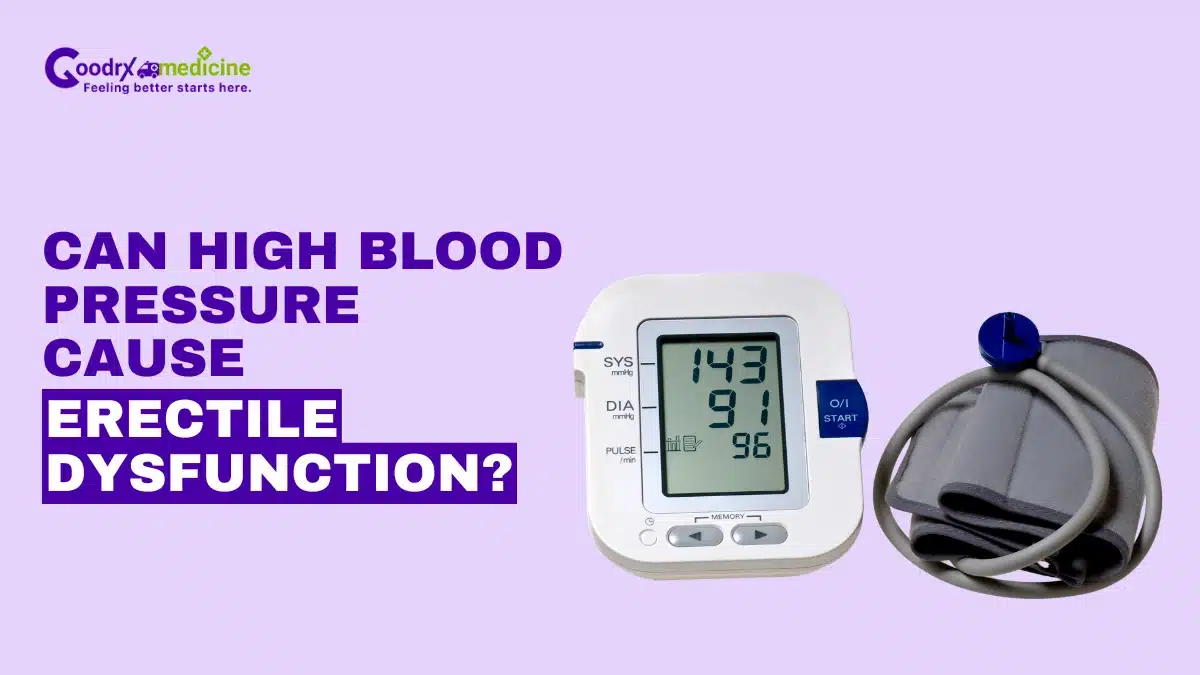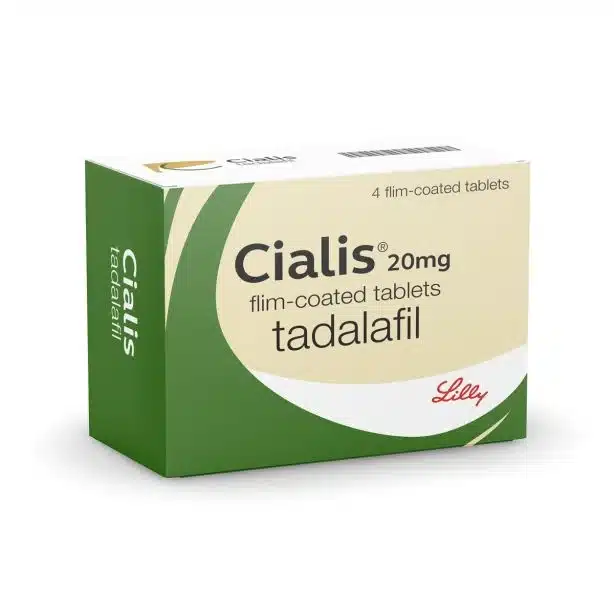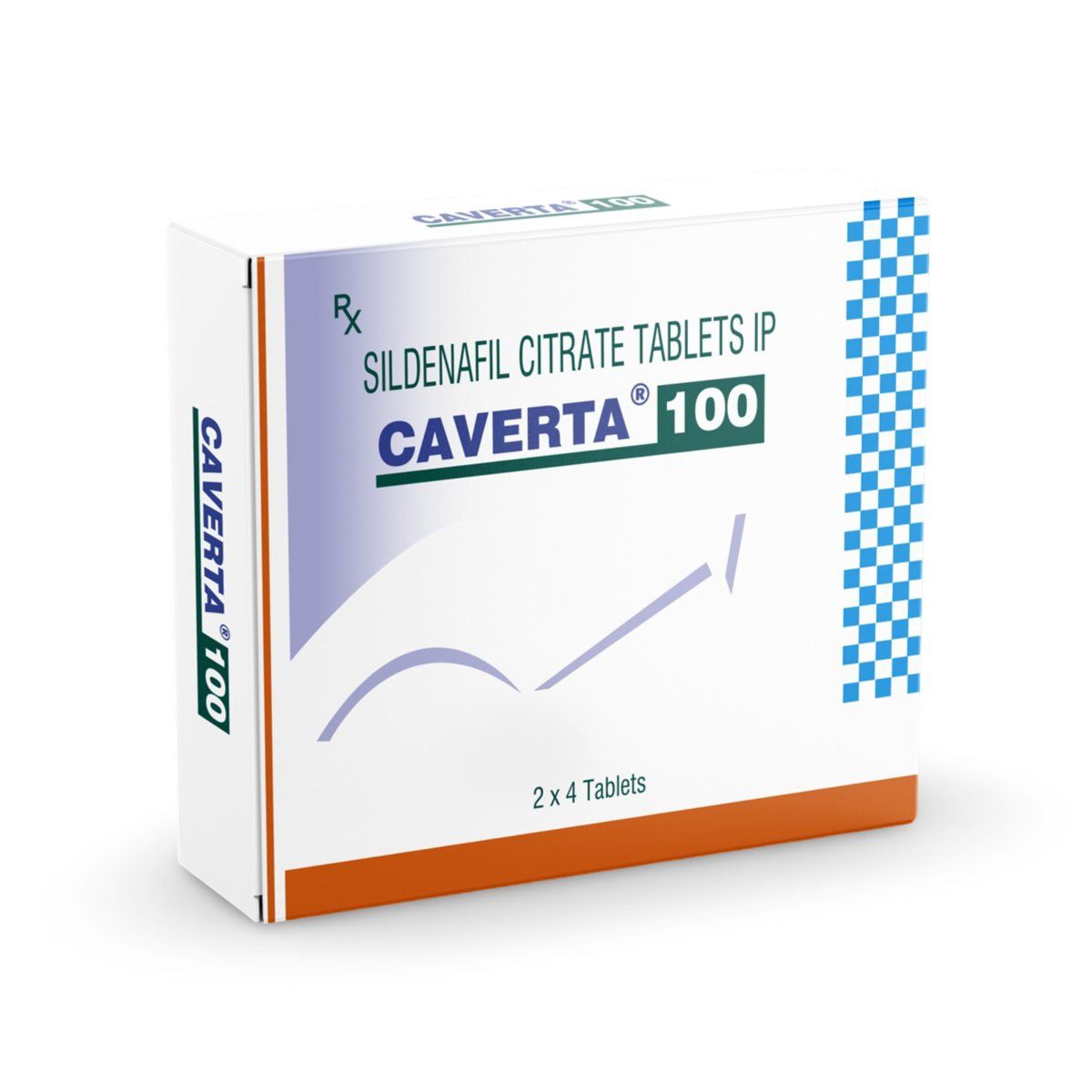High Blood Pressure or Hypertension does not just strain your heart—it can quietly affect something deeply personal: your ability to enjoy a healthy sex life. It’s a concern that crosses many minds—can High Blood Pressure cause Erectile Dysfunction?
The connection between your heart and erections is stronger than you might think. While Hypertension is often associated with heart attacks or strokes, its impact on sexual performance is rarely talked about—but it’s real.
In fact, Erectile Dysfunction, or ED, can be one of the first warning signs that something is not right with your blood flow. In this article, we will look at how High Blood Pressure can affect your erections, how some medications play a role, and the steps you can take to reclaim your confidence—naturally, safely, and effectively. Read on to learn more!
How can High Blood Pressure cause Erectile Dysfunction?
High Blood Pressure can interfere with a man’s ability to get or maintain an erection. It mainly impacts the blood vessels by making them less flexible and damaging their inner lining, the endothelium. This lining normally produces Nitric Oxide (NO), a substance that helps blood vessels relax and allows proper blood flow into the penis during arousal.
When blood pressure remains high over time, this process becomes disrupted. Less Nitric Oxide means the vessels stay narrow and tense, restricting blood flow where needed.
Here is what happens:
- Endothelial damage: The inner lining of blood vessels becomes stiff and dysfunctional.
- Restricted blood flow: Narrow arteries can’t carry enough blood to support a firm erection.
- Possible nerve impact: In long-term cases, blood pressure issues may also interfere with the nerves involved in arousal.
The International Journal of Hypertension reported in 2021 that approximately 46.34% of Hypertensive men experienced ED, making it a very common coexisting issue among Hypertensive males.
Even Low Blood Pressure is not without consequence—it may decrease the blood flow needed for firmness. Without adequate pressure, blood doesn’t reach the penis in sufficient amounts.
Whether your blood pressure is too high or too low, the result is the same—reduced blood flow equals poor erection quality. That’s why maintaining optimal blood pressure is crucial for sexual function.
Impact of High Blood Pressure medications on Erectile function
Sometimes, the treatment for High Blood Pressure can unintentionally impact your sexual performance. Not all blood pressure medications cause ED, but a few older ones might cause it.
Here’s how different medications may affect erectile function:
- Beta-blockers (BBs): Often linked to ED, especially older types. However, Nebivolol, a newer Beta-blocker, may have better results.
- Centrally acting medications (e.g., Clonidine, Methyldopa): These are known to affect erectile function negatively.
- Thiazide diuretics: Earlier studies suggested a link with ED, but newer evidence doesn’t support that.
- Angiotensin-Converting Enzyme inhibitors and Angiotensin II Receptor Blockers: These may positively affect erections and are generally better tolerated.
- Calcium-Channel Blockers (CCBs): Usually have a neutral effect on sexual function.
Lifestyle choices that influence ED and High Blood Pressure
Making healthy changes can support your heart and help improve your performance over time.
Here are key lifestyle habits to know:
- Smoking and tobacco use: These reduce nitric oxide levels and narrow blood vessels, affecting blood flow and increasing blood pressure. Quitting can boost both heart and erectile health.
- Excessive alcohol intake: Limit drinking too much alcohol as it can raise blood pressure, damage arteries, and disrupt hormones, leading to performance issues.
- Unhealthy eating habits: Diets high in salt, sugar, and processed foods can lead to weight gain and high blood pressure. Choosing fresh fruits, vegetables, and whole grains supports your heart and overall well-being.
- Lack of exercise: Being inactive contributes to poor circulation and weight gain. Regular and consistent physical activity improves blood flow and helps manage blood pressure.
- Obesity: Extra weight strains your heart, increases inflammation, and lowers blood flow. Losing even a small amount of weight can make a difference.
- Chronic stress and poor mental health: Ongoing stress can spike blood pressure and lower sexual desire. Relaxation techniques or therapy can help.
- Low self-confidence: Feeling unhealthy or unhappy with your body can impact your sex life. Building a healthy lifestyle often improves how you feel inside and out.
You can take small steps toward better physical and emotional health by understanding how these habits affect both conditions.
Treating Hypertension induced Erectile Dysfunction
Erectile Dysfunction caused by High Blood Pressure is often treatable, especially if the issue is addressed early. The focus should be on treating the underlying cause—your blood pressure—while supporting overall vascular and sexual health.
To improve the ED caused by Hypertension:
- Keep your blood pressure in check: A stable, healthy range improves blood vessel function and circulation to the penis.
- Make lifestyle improvements: Eating a heart-healthy diet, staying active, and avoiding tobacco and excessive alcohol help repair blood vessels and improve Nitric Oxide production.
- Review your medications: Some blood pressure drugs may worsen ED, while others are safer alternatives. Your doctor can help you switch to options with fewer sexual side effects.
- Consider ED treatments: Men with High Blood Pressure can explore various Erectile Dysfunction treatment options. Phosphodiesterase type inhibitors are often prescribed, as they work by increasing blood flow to the penis and are generally safe for those with well-controlled Hypertension. In addition to medications like Sildenafil, non-medication options such as vacuum erection devices or psychological therapy may also be beneficial, especially when emotional or mental health factors contribute to ED.
By addressing both blood pressure and sexual health together, many men experience a significant improvement, or even a full recovery, from ED.
Conclusion
Can High Blood Pressure cause Erectile Dysfunction? Yes, it can—and the connection goes deeper than many realize.
High Blood Pressure affects blood flow, vessel flexibility, and Nitric Oxide production, all essential for healthy erectile function. Certain blood pressure medications and unhealthy lifestyle habits can make the problem worse. But the good news is that this form of ED is often manageable and even reversible.
You can improve your sexual and cardiovascular health by controlling your blood pressure, making healthier lifestyle choices, and working with your doctor to adjust your treatment plan. Don’t ignore the signs. Take action early and talk to your healthcare provider to regain control and confidence.
Frequently Asked Questions
What causes a weak erection?
Weak erections can arise from narrowed or stiffened arteries that limit blood flow, nerve damage that impairs signal transmission, hormone imbalances like low Testosterone, psychological stress that inhibits arousal, and side effects of certain medications—all of which disrupt normal erectile function.
Does High Blood Pressure affect libido?
High Blood Pressure does not directly lower libido, but managing the condition can affect your emotional well-being and blood flow, which may reduce sexual desire. The stress and health impacts related to Hypertension can also contribute to a decrease in interest in sex.
Is there a link between cholesterol levels and ED in men with Hypertension?
Yes, high cholesterol levels can worsen Erectile Dysfunction in men with Hypertension. Increased cholesterol can contribute to plaque buildup in arteries, impairing blood flow and affecting heart health and erectile function. Managing cholesterol is an essential part of overall cardiovascular and sexual health.
Does salt help Erectile Dysfunction?
No. Excess salt raises blood pressure, damaging blood vessels and reducing genital blood flow. Cutting sodium intake improves artery health and circulation, which may enhance erectile function. Managing salt helps those with Hypertension-related Erectile Dysfunction.
When referencing outside resources, GoodrxMedicine always provides full citations. To learn more about the measures we use to maintain the quality of our content, please review our Content Information Policy.















